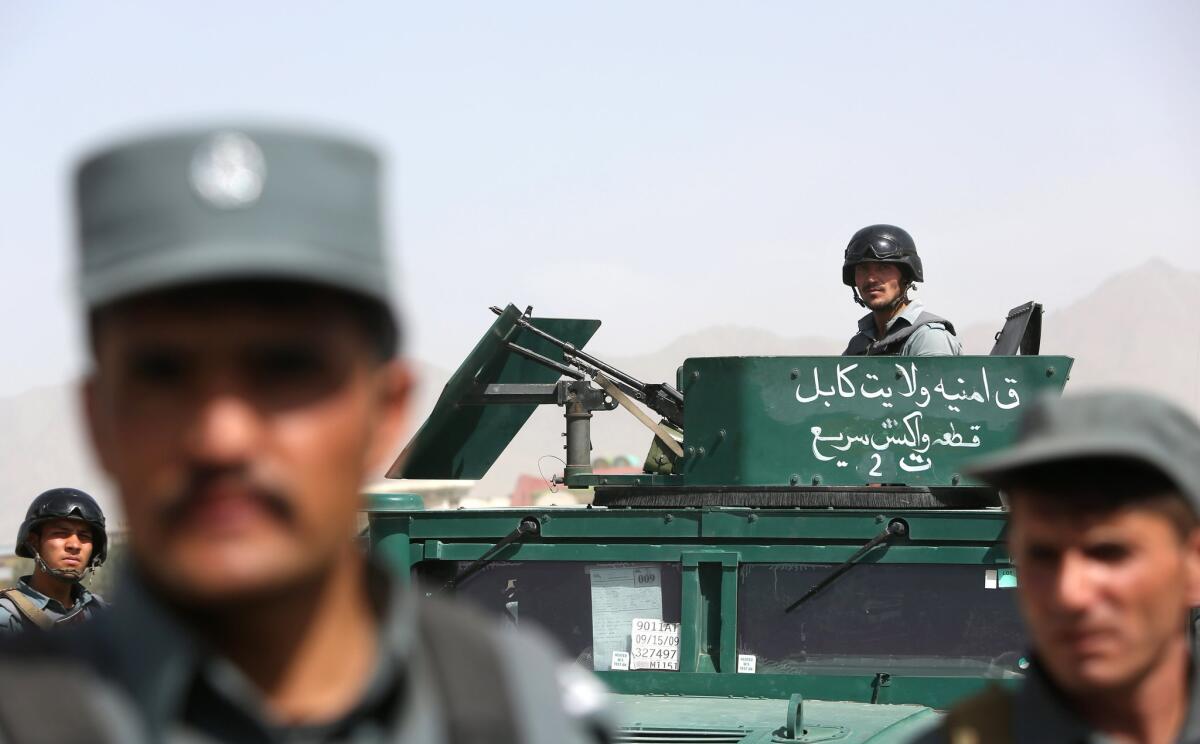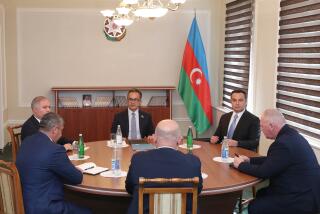Peace talks in Afghanistan: What does the Taliban really want?

Afghan security troops inspect the site of a suicide attack after clashes with Taliban fighters at the gate of an intelligence facility in Kabul, Afghanistan, on July 7.
Less than a month after a historic first meeting, representatives of the Taliban and the Afghan government are due to sit down again Friday in Pakistan amid reports that the insurgent group’s supreme leader is dead.
Mullah Mohammed Omar had not been seen publicly in more than a decade and long ago ceased running the Taliban’s day-to-day operations. But the man who ruled Afghanistan before the 2001 U.S.-led invasion was the spiritual guide of the insurgent faction that most strongly supported peace talks with Kabul.
Though the Taliban for years vowed not to negotiate with a government it calls a tool of the West, a statement attributed to Omar two weeks ago endorsed the meetings, which many believe represent the best chance for a truce in a decade-plus war that has killed more than 21,000 Afghans (and nearly 2,400 Americans).
Omar’s departure from the scene would only add to the questions swirling around the nascent peace process:
Is the Taliban ready to negotiate seriously?
There are sharp divisions in the organization over whether the timing is right for dialogue.
Since the few thousand remaining U.S.-led international forces moved into a backup role this year, the militants have launched an offensive that has killed thousands of Afghan soldiers and police. Recent gains in northern Afghanistan, not a traditional stronghold, have led some militants to argue that talks would derail their battlefield momentum.
But the Taliban also is feeling pressure from Afghans aghast at the growing body count and from defectors who have claimed allegiance to Islamic State. The two militant groups are fighting a public relations war, with Taliban leaders claiming that only they have the standing to negotiate with the Kabul government.
See the most-read stories this hour >>
Some senior Taliban members, including those allied with Omar, see the talks as a chance to cash out after nearly 15 years of violence.
“There is tension inside the movement between those who still believe they are making dramatic progress in their offensive and those who are tired of the conflict,” said Michael Semple, visiting professor at the Institute for the Study of Conflict Transformation and Social Justice at Queens University in Belfast, Northern Ireland.
“For that second group, a peace process that is endorsed by Pakistan, Afghanistan and the international community gives them an opportunity, perhaps, to get more than they would have out of negotiations.”
What does the Taliban want?
The Taliban’s long-stated aim is to establish an Islamic emirate in Afghanistan. Just by sitting down with the government, Taliban pragmatists have signaled they realize “it’s very unlikely they’ll get their emirate,” Semple said.
But there is more the Taliban wants.
At the first meeting in the Pakistani city of Murree, Taliban representatives repeated long-standing demands for the withdrawal of all foreign troops, the release of insurgent commanders from Afghan custody and the lifting of United Nations sanctions on several of their leaders.
Taliban statements have also called for a renegotiation of the Afghan constitution, which was agreed to after U.S.-led forces drove them from power and was “drafted under the shadow of B-52 bombers of the foreign invaders.” Some Taliban leaders are said to be angling for top positions in the ministries of justice and religious affairs, where they could usher in Islamic legal principles.
Afghan President Ashraf Ghani’s administration has said anything is up for discussion, but Deputy Foreign Minister Hekmat Karzai is expected to push Friday for the Taliban to accept a cease-fire before discussions can begin – a pre-condition that scuttled previous attempts to launch talks.
Do Afghans back the peace process?
Some Afghans will find it difficult to stomach the idea of the Taliban in government or the security forces. Last year was one of the deadliest since the war began, with nearly 3,700 civilians killed and more than 6,800 injured, the vast majority in violence attributed to the Taliban and its allies, according to U.N. statistics.
Many also are skeptical of the involvement of Pakistan, whose security establishment is believed to maintain links to the Taliban. Ghani has assiduously courted Pakistan, gambling that the neighboring country would bring Taliban leaders to the negotiating table, but it has cost him support at home, including that of former President Hamid Karzai, and among allies such as India, Pakistan’s blood enemy.
“Far from Afghan-owned,” an unidentified Indian official was quoted as telling The Hindu newspaper, “these talks seem to be ISI-controlled and ISI-led,” referring to Inter-Services Intelligence, the Pakistani military spy agency.
And it’s unclear whether Taliban religious hard-liners will accept the growing role of women, one of the major changes in Afghan public life since 2001.
“There are a lot of questions but we can’t even get to those issues until a few rounds of negotiations,” said Haroun Mir, a political analyst in Kabul. “And right now the peace initiative doesn’t have the political support from key players. The government won’t be able to sell it if the violence is not reduced.”
What would Omar’s death mean?
Omar retained a symbolic hold over the Taliban old guard based in the Pakistani city of Quetta, but analysts say that as legions of militants died in the conflict, they were replaced by a younger crop less wedded to Omar’s religious leadership.
In recent weeks, Pakistani officials have pointed to a power struggle inside the Taliban over Omar’s successor. Some loyalists have suggested Omar’s eldest son, Yaqoob, who is in his mid-20s and recently graduated from a Pakistani seminary, as an alternative to Mullah Mansoor, the group’s de facto head.
NEWSLETTER: Get the day’s top headlines from Times Editor Davan Maharaj >>
The power vacuum could weaken the Taliban’s position at the negotiating table, possibly pushing more commanders to defect to Islamic State, analysts say.
That is likely to mean even more fighting in the near term as rival militants scramble to seize what they can.
“The ongoing violence reflects the fact that the leadership has a very tenuous hold over commanders and foot soldiers,” said Emily Winter Botham, a former advisor to the European Union in Kabul. “This is not a hierarchical, homogenous movement. So I wouldn’t expect to see any decline in violence in the near future.”
Follow @SBengali for news from South Asia.
ALSO
One of Pakistan’s most feared militants is killed in shootout
Russia uses U.N. veto power to scuttle tribunal for MH-17 downing
Israel accused of war crimes in retaliation for soldier’s capture in Gaza
More to Read
Sign up for Essential California
The most important California stories and recommendations in your inbox every morning.
You may occasionally receive promotional content from the Los Angeles Times.











